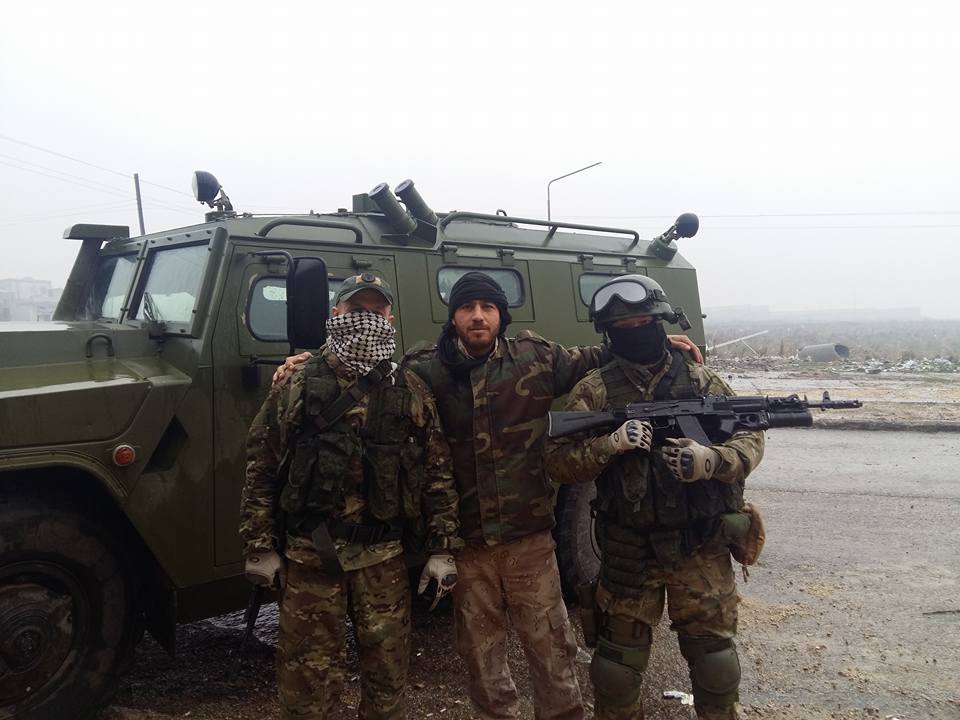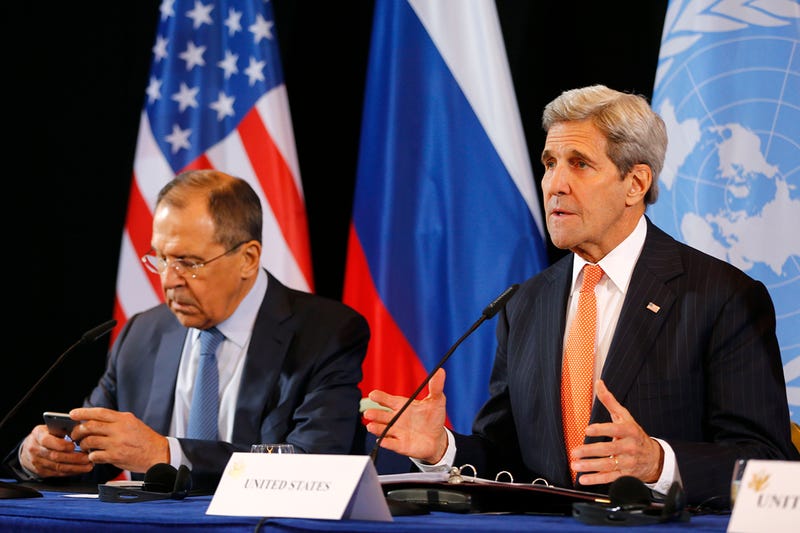Take the ground on the cheap, herd them all in one place and euthanize them all...
http://www.reuters.com/article/us-mideast-crisis-syria-ceasefires-idUSKCN0VK1CT
National reconciliation minister Ali Haidar also said escalating military pressure was forcing more rebels to seek out deals that have resulted in some moving from areas of Damascus and Homs to insurgent strongholds in Idlib and Raqqa.
Haidar's comments in an interview with Reuters reflect the dramatic shift in momentum in the Syrian war since Russia began air strikes in support of President Bashar al-Assad on Sept. 30.
As the United States struggles to advance diplomacy toward securing a wider ceasefire, so-called local reconciliation agreements represent the government's preferred tool for making peace on its terms from a position of strength, area by area.
Such agreements - a feature of the conflict for some time - are often described as a means for the government to force surrender on insurgents, and have typically followed lengthy blockades of rebel-held areas and the civilians living there.
"The truth is that since the presence of the Russians on Syrian land, they can play the role of mediator in some areas," Haidar said at his offices in Damascus.
"Sometimes it is the militants who request mediation by the Russians," he said. Those wishing to relocate wanted guarantees of safe passage to rebel strongholds, and those wishing to stay wanted to be sure they wouldn't be killed later on, he said.
Haidar described the process as purely Syrian even if there had at times been help from Russia since the start of its intervention in the war.
"It isn't the mediation that plays the important role. The important role is the achievements of the army in military operations, closing the path in front of these groups. The horizons are closed and this is what makes them head toward the other solution," he said.
CONTACTS IN ALEPPO
With the government gaining ground backed by Russian air power, international diplomacy is struggling to make headway toward an overall negotiated settlement to the war that has killed 250,000 people and forced 11 million from their homes.
Major powers with influence over the conflict are meeting in Munich on Thursday. A Western official said on Wednesday Moscow had presented a proposal envisaging a truce in three weeks' time, though Washington has concerns about parts of it.
Peace talks between the government and opposition factions were aborted in Geneva last week before they really began, with the opposition withdrawing as government forces backed by allied militia made a dramatic advance north of Aleppo.
Haidar said contacts had begun with groups in Aleppo, a city divided into zones controlled separately by the government and opposition, with a view to concluding local agreements there. The government has vowed to recapture Aleppo.
"We have started contacts with some of the militant commanders via mediators, we are seeking to arrive at solutions that keep civilians out of any coming military action," Haidar said.
"This is happening in the Aleppo countryside, the districts of Aleppo, and rural Homs, and rural Damascus now," he said. The secret contacts in Aleppo had got underway less than two weeks ago, he said.
In one local agreement, some 270 gunmen from the al Qaeda-linked Nusra Front left the last opposition-held district of Homs for the insurgent stronghold of Idlib in December. The buses were provided by the government.
Others have left suburbs of Damascus for both Idlib and Raqqa province, Islamic State's stronghold in Syria.
Haidar said talks were under way for the evacuation of a total of 1,800 militants from suburbs of southern Damascus to both Idlib and Raqqa. He declined to give details because of the sensitivity of the talks.
Haidar described it as a military tactic by insurgents who, feeling that are under pressure, are being forced to move fighters to areas such as Idlib "for the coming battle".
"As their horizons close, and they feel ... they can no longer wage battles across all Syria, they have started to head toward gathering their forces in certain areas," Haidar said.
Haidar said more than 50 local deals had been concluded, though not all of them had been implemented in full. "We have a plan that can achieve reconciliations covering another million people within six months," he said.
While welcoming deals that save lives, the United Nations says many have failed to improve conditions for civilians.
"It is always a good thing when the guns go silent because it means lives can be saved. However, many local agreements, after they were concluded, have fallen short because free movement for civilians, free access for humanitarian aid, or restoration of basic services did not become reality," Yacoub El Hillo, UN Humanitarian and Resident Coordinator in Syria, said.
"(Mouadamiya) is an example of how the agreement did not materialize as originally envisioned. It is imperative that these agreements have an immediate dividend that is felt by the people in these locations," he said.
Haidar said rebels had breached the ceasefire in Mouadamiya, southwest of Damascus, which was concluded in 2013. The army is currently mounting an attack to separate Mouadamiya from nearby Daraya.
Haidar said: "We are seeking the departure of the remaining gunmen from Mouadamiya and its return to (normal) life."





 PapaDragon
PapaDragon


